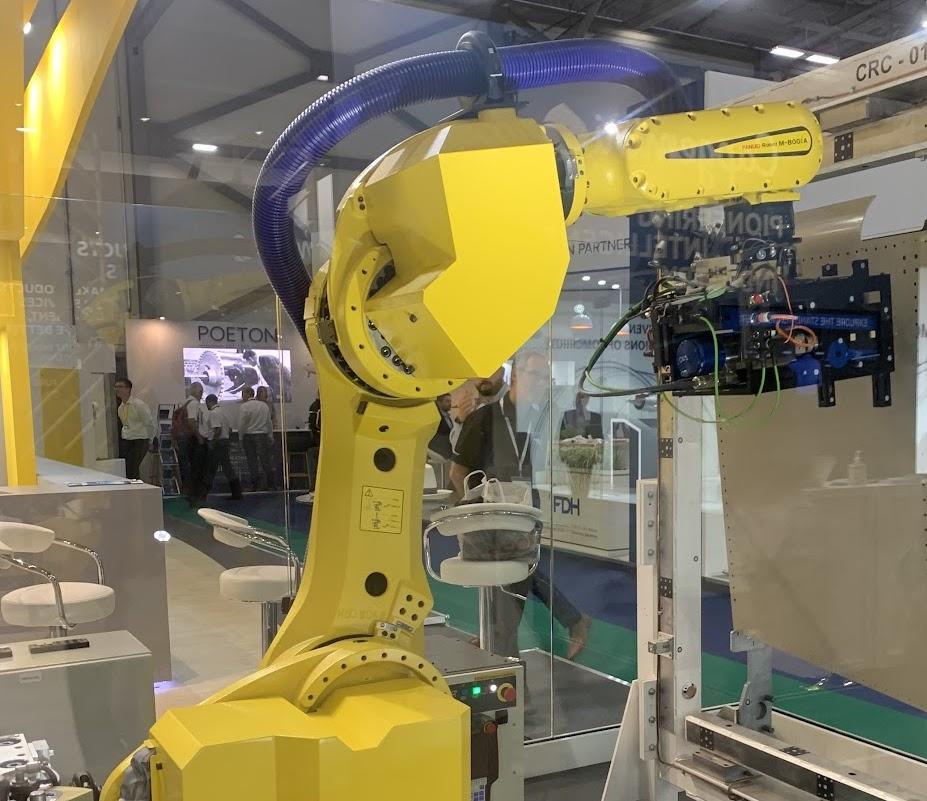
FARNBOROUGH—The UK's aerospace sector may be missing out on long-term cost-reduction and rate-improvement opportunities across its manufacturing base.
Oliver Selby, head of UK sales at automation and industrial-robotics specialist FANUC, says the sector lags automotive by more than a decade's worth of robotics take-up, and believes that over-ambitious amortization aspirations are holding aerospace back.
"We go through the normal process of engaging with the customer, understanding what the requirement is, finding solutions, and then the actual final commitment to automation has not necessarily been there," he tells ShowNews on the company's stand at Farnborough Airshow. "I think part of the reason—certainly in the UK—is because the payback isn't as quick as they want it to be."
Whereas industrial manufacturers in Europe and elsewhere tend to view four-to-five years as a reasonable timescale to see a return on a capital investment, Selby says British companies expect to see one within two years. "There's a big difference there," he says. "What you can commit to over five years, there's a big difference in terms of the capital outlay at the start."
Selby suggests that, in a typical car factory, there may be several thousand robots, but in a comparable aerospace facility there may be only a tenth as many deployed. Another possible reason for this apparent discrepancy—again, Selby says, seen more clearly in the UK than elsewhere—is a focus on initial potential rather than ongoing industrialization.
"The UK has been very, very good at doing the R&D work for aerospace processes, and not necessarily good at transferring that into production," he says. "Other countries tend to commit to that technology at an earlier stage of the adoption process. One of the things that we find is that [potential customers] always want to get it to the Nth degree before they commit and say, 'Yes, that is suitable for my production.' In other countries they tend to commit earlier."
Addressing this gap will obviously help FANUC's own bottom line, but, Selby argues, automation offers a chance for aerospace companies to both tackle their ongoing skills shortages and to contribute to their environmental commitments. Some of FANUC's products are fully electric, and Selby says that automated processes, properly implemented, will often use up to 30% less energy than non-automated ones. So, to help get the message across, the company is launching an information portal during the Airshow.
"It's been pulled together using case studies, information from our own website, and everything around aerospace from the global customer base that we have who are using FANUC products within their own processes," Selby says. "The idea was to try and make an understanding of how robots and automation can be adopted in aerospace manufacturing more accessible to everyone, to understand what's available, how others are doing it, to get the best practice transferred across the whole of the industry."

